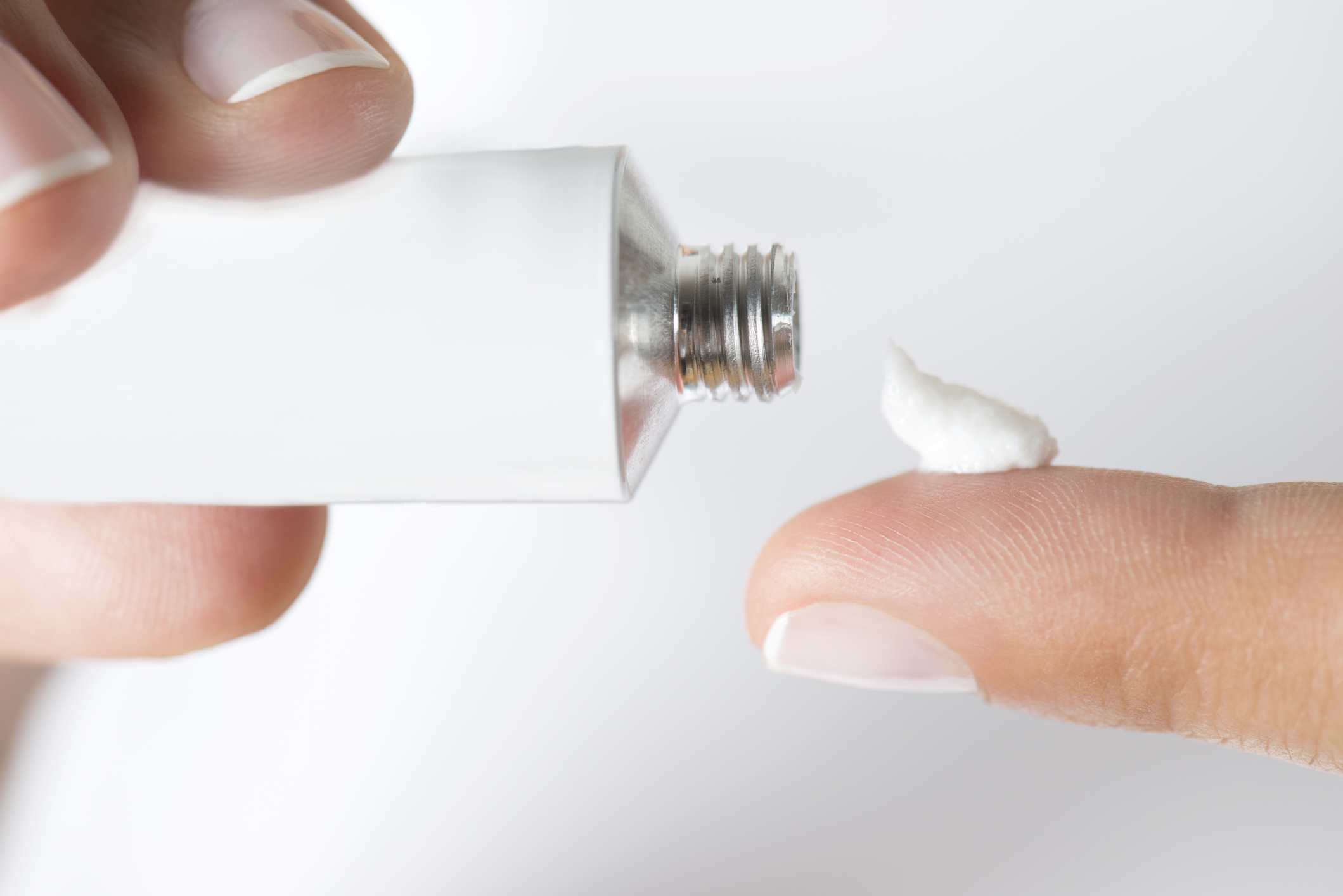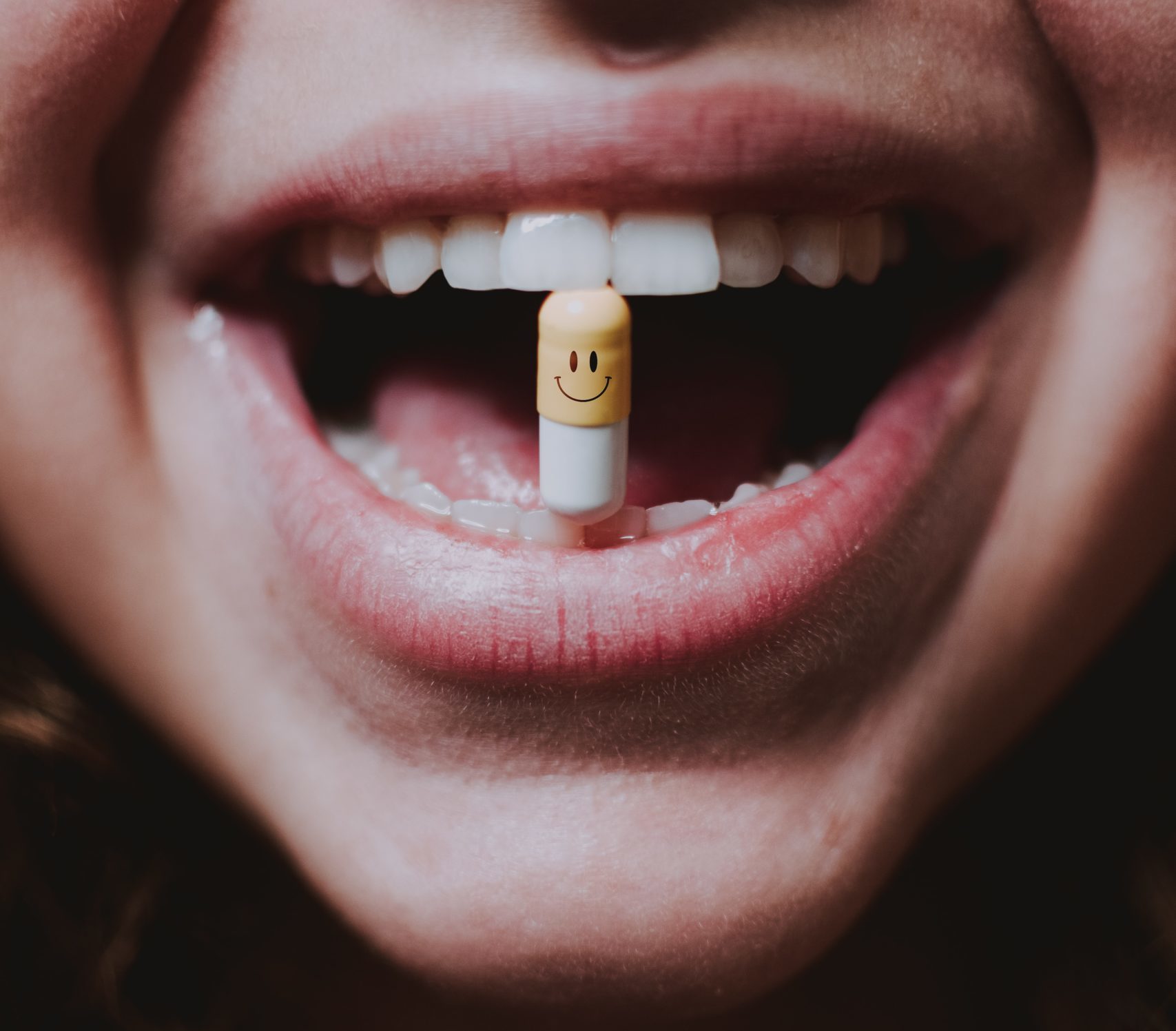
Women’s Libido Formulas
Vitocin nasal spray, Climax cream, Triple Orgasmic cream, Scream cream, Intimacy Enhancer, & PT-141 Combination
Women with female sexual dysfunction, female sexual arousal disorder, or those just wanting more powerful orgasms can benefit when libido cream is used. Women who desire an enhanced sexual experience typically report faster and stronger orgasms. For even greater effects Sildenafil (the active ingredient in Viagra used to treat male erectile dysfunction) may be blended into the cream. By inhibiting the enzyme PDE-5 which prevents Nitric Oxide, Sildenafil allows the tissues to be relaxed and allow blood flow to the clitoris and vagina. Another libido enhancer blends the peptide PT-141, oxytocin, and tadalafil (the active ingredient in Cialis used to treat male erectile dysfunction) in an orally disintegrating tablet for a powerful mixture to improve blood flow, arousal, and orgasms.
Formulations available include: (See How to Use section for ingredients)
Vitocin Nasal Spray - Oxytocin
Climax Formula - Aminophylline / Arginine HCl / Ergoloid Mesylate / Pentoxifylline
Triple Orgasmic Cream – Aminophylline / Ergoloid Mesylate / Isosorbide
Scream (Dream) Cream – Aminophylline / Arginine
Scream Cream With Sildenafil – Aminophylline / Arginine / Sildenafil topical
Women’s Intimacy Enhancer – water based lubricant with ginkgo biloba and menthol
Is your libido off track?
In the United States, over 40% of women report sexual problems, and over 10% report that these problems are the cause of distress.
Female Sexual Dysfunction:
Persistent, recurrent problems with sexual response, desire, orgasm or pain - that distress you or strain your relationship with your partner- are known medically as sexual dysfunction. Sexual dysfunction has may possible symptoms/causes, formulas and treatments vary. It is important to understand the woman's normal sexual response and her goals for her sex life when choosing a treatment and evaluating whether or not the treatment is working. Effective treatment for sexual dysfunction often requires addressing any underlying medical conditions, hormonal changes, or emotional conditions.
Female Sexual Arousal Disorder (FSAD):
Female sexual arousal disorder is characterized primarily by an inability to attain or maintain sufficient physical sexual arousal that causes distress or interpersonal difficulty. It is the female counterpart to erectile dysfunction (ED) in men.
SYMPTOMS
Symptoms vary depending on what type of sexual dysfunction you're experiencing:
~ Low sex drive- This is the most common of female sexual dysfunctions and involves a lack of sexual interest and willingness to be sexual.
~ Sexual arousal disorder- Your desire for sex might be intact, but you have difficulty with arousal or are unable to become or maintain arousal during sexual activity.
~ Orgasmic disorder- You have persistent or recurrent difficulty in achieving orgasm after sufficient sexual arousal and ongoing stimulation.
~ Sexual Pain disorder- You have pain associated with sexual stimulation or vaginal contact.
CAUSES
Sexual problems often develop when your hormones are in flux, such as after having a baby or during menopause. Major illness, such as cancer, diabetes, or heart and blood vessel (cardiovascular) disease, can also contribute to sexual dysfunction. Factors, often interrelated, that contribute to sexual dissatisfaction or dysfunction include:
Physical- Any number of medical conditions, including cancer, kidney failure, multiple sclerosis, heart disease and bladder problems, can lead to sexual dysfunction. Certain medications, including some antidepressants, blood pressure medications, antihistamines and chemotherapy drugs, can decrease your sexual desire and your body's ability to experience orgasm.
Hormonal- Lower estrogen levels after menopause may lead to changes in your genital tissues and sexual responsiveness. A decrease in estrogen leads to decreased blood flow to the pelvic region, which can result in less genital sensation, as well as needing more time to build arousal and reach orgasm. The vaginal lining also becomes thinner and less elastic, particularly if you're not sexually active. These factors can lead to painful intercourse (dyspareunia). Sexual desire also decreases when hormonal levels decrease. Your body's hormone levels also shift after giving birth and during breastfeeding, which can lead to vaginal dryness and can affect your desire to have sex.
Psychological and Social- Untreated anxiety or depression can cause or contribute to sexual dysfunction, as can long-term stress and a history of sexual abuse. The worries of pregnancy and demands of being a new mother may have similar effects.
Long-standing conflicts with your partner — about sex or other aspects of your relationship — can diminish your sexual responsiveness as well. Cultural and religious issues and problems with body image also can contribute.

Vasodilators
Increased blood flow to clitoris & vagina
Improved genital response
Enhanced arousal
Increased sexual responsiveness
Faster & stronger orgasms
Enhanced overall sexual experience

Vitocin (Oxytocin)
Promotes a bond of intimacy, closeness, & desire
Increases sexual receptiveness
Generates emotional connection & sexual intimacy
Enhances arousal and orgasm

Lubricants
Increases oxygen supply & nutrients to tissues
Boosts blood flow to clitoris & vaginal tissue
Provides cooling effect
How to Use
How to Use
Apply cream to clitoris and/or genital tissue prior to sexual activity to increase oxygen delivery and local blood flow for improved genital response and overall sexual experience. For Vitocin nasal spray, use prior to sexual activity for enhanced arousal, bonding, and overall sexual experience. For PT-141 combination, take orally disintegrating tablet under the tongue for rapid sexual enhancement.
What are in female libido formulas?
Oxytocin: A powerful "bonding/love" hormone that acts as a neurotransmitter in the brain, influences behaviors empathy, generosity, and orgasm. Oxytocin levels increase naturally with hugging and kissing.
Aminophylline: A vasodilator used to dilate (open) blood vessels, which allows blood to flow more easily.
Ergoloid Mesylate: A combination of several drugs used to treat some mood, behavior, or other problems that may be due to changes in the brain, helps improve cognitive function.
Arginine HCl: An amino acid with a hydrogen chloride molecule, used to increase oxygen delivery and blood flow during sexual activity.
Isosorbide: A vasodilator that works by relaxing the blood vessels.
Pentoxifylline: A vasodilator that works by improving the flow of blood through blood vessels.
Sildenafil: A PDE5 inhibitor that studies show to increase local blood flow to clitoris/genital tissue, improved genital response and overall sexual experience.
Ginkgo Biloba: An antioxidant that can regulate the behavior of blood vessels (vasoregulation), increase oxygen and nutrient supply to tissues, and prevent ischemia (inadequate blood supply).
Menthol: A cooling compound obtained organically from certain types of mint, or made synthetically.
PT-141 (Bremelanotide): A peptide developed from the hormone Melatonin II, which promotes sexual function in both men and women by interacting with the hypothalamus. This powerful peptide may help with increased libido, elevated sexual gratification, increased sexual energy & desire, and mood enhancement.
Tadalafil (generic Cialis): Phosphodiesterase inhibitors (PDE5-inhibitors) such as Viagra (sildenafil), Cialis (tadalafil) are thought to improve blood flow to clitoral and vaginal tissues through a similar response to that found in male genitalia.In one study on women diagnosed with FSAD, improvement in genital sensation, lubrication, ability to have an orgasm, and overall sexual experience were experienced with the use of PDE5-inhibitors. In another study, PDE5-inhibitors were successful in treating FSAD caused by type 1 diabetes, multiple sclerosis, and antidepressant use. Yet in another study, the use of PDE5-inhibitors in healthy females reported success in improving arousal, orgasm, and enjoyment.
